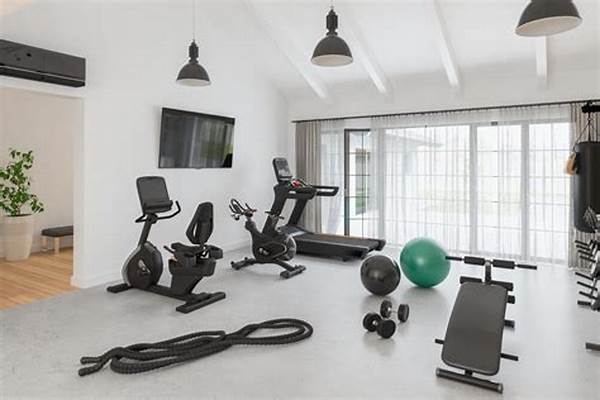In recent years, there has been a noticeable shift in how Indonesia’s youth approach fitness. Once a luxury reserved for the affluent, gym memberships have been the traditional go-to for those seeking an active lifestyle. However, the tides are turning. The surge in digital resources, the convenience of home workouts, and the restrictive confinements brought about by the COVID-19 pandemic have led Indonesia’s youth to embrace home workouts over gym membership. This new approach is not just a trend but a sustainable lifestyle change, incorporating both physical and mental health benefits.
Read More : How To Combine Cardio & Strength Without Equipment
The comfort and flexibility of exercising at home resonate deeply with the younger generation. Without the time constraints and extra costs associated with regular gym visits, home workouts offer unparalleled freedom and affordability. Moreover, the accessibility of online fitness programs has democratized exercise, making it available to anyone with access to the internet. Through creative marketing and engaging content, influencers and fitness gurus are harnessing platforms like YouTube, Instagram, and TikTok to promote innovative and enjoyable workout routines that can be done at home with minimal equipment.
It’s also essential to note the psychological boost that comes from these workouts. With increasing stress and pressure from academic and career pursuits, young Indonesians find home fitness routines a refreshing stress-buster. By fostering a sense of community and motivation through online groups and challenges, home workouts are more than just a physical activity; they have become a social experience that encourages both personal and collective well-being. As we continue to navigate through a post-pandemic world, the inclination of Indonesia’s youth toward home workouts over gym memberships is a trend worth watching closely.
Why Home Workouts Are Winning Over Gym Memberships
The ongoing trend where Indonesia’s youth embrace home workouts over gym membership reflects a broader shift in lifestyle preferences. Here are some reasons why young Indonesians are rethinking traditional fitness models:
1. Cost-Effective Choice: Gym memberships can be expensive, and during times of economic uncertainty, many young individuals find home workouts a more economical choice. They can invest in minimal equipment like dumbbells, resistance bands, or even use body weight exercises that require no cost at all.
2. Time Efficiency: Commuting to the gym can take a considerable amount of time, especially in urban areas with heavy traffic. Working out at home eliminates commute time, making it easier for youths to incorporate fitness into their busy schedules.
3. Personalized Environment: Home workouts allow individuals to customize their workout space. Whether it’s yoga in the living room or HIIT sessions in the backyard, youths can create an environment that suits their personal preference and boosts motivation.
4. Access to Global Content: The proliferation of digital platforms providing diverse workout routines has fueled the home workout trend. Video tutorials and live classes offer young Indonesians a range of activities, from yoga and pilates to intense boot camps, all accessible right from their homes.
5. Community Building: Social media platforms have become hubs for fitness communities to connect, share progress, and support each other. These communities play a crucial role in motivating individuals and creating a sense of belonging that is sometimes lacking in traditional gym settings.
Exploring the Trend: Home Workouts vs Gym Memberships
The imagery of bustling gym floors versus a serene home workout space highlights the distinct advantages and challenges of each fitness approach. Observing these differences can provide deeper insights into why Indonesia’s youth are drawn toward home workouts.
As technology continues to advance and the digital sphere becomes more intertwined with daily routines, the phenomenon of Indonesia’s youth embracing home workouts over gym membership will likely evolve, offering new opportunities and challenges within the fitness landscape.
The Rise of Digital Fitness Platforms
Digital fitness platforms play a pivotal role in this transformation, bridging the gap between accessibility and quality in the world of fitness. With platforms such as Peloton, Beachbody, and an array of fitness applications, users can receive professional guidance and structured programs that promote consistency and progression. The competitive edge provided by such platforms is propelling the shift to home workouts, drawing more young Indonesians away from traditional gym settings.
Indonesia’s youth have a new mantra – adapt and evolve. By embracing home workouts over gym membership, they are setting a new trend, not just in Indonesia but possibly inspiring changes in fitness cultures across the globe.
The Future of Fitness for Indonesia’s Youth
Looking ahead, the trend of Indonesia’s youth embracing home workouts over gym membership indicates a possible redefinition of what fitness means in today’s world. This self-driven approach highlights personal responsibility in health and wellness, all while promoting inclusivity and innovation in fitness habits. The transformation within this invigorated landscape invites everyone, regardless of their fitness level or economic status, to join the movement towards a healthier, happier Indonesia.
Wouldn’t you want to be part of this empowering journey? Consider trying a home workout today and feel the difference. Remember, the gym might have its allure, but your best fitness partner might just be waiting for you at home.
9 Details Related to Indonesia’s Youth Embrace Home Workouts over Gym Membership
The Shift in Fitness Paradigms
Undoubtedly, the world of fitness is experiencing a paradigm shift as Indonesia’s youth increasingly embrace home workouts over gym memberships. This trend is a reflection of a more significant global movement towards personalized and accessible health solutions. Digital platforms have made this transformation possible, giving rise to a new fitness culture marked by autonomy, community, and empowerment.
In conclusion, while traditional gyms still have their place, the current lean towards home workouts among Indonesia’s youth presents a compelling case for rethinking health and wellness. It champions a self-motivated spirit that aligns with modern-day technological advancements and the pursuit of holistic well-being. So, whether you’re a fitness novice or a seasoned athlete, jumping on this home workout bandwagon might just be the right move for you. Embrace the change, and who knows, you might find that your home is your best fitness arena yet.


